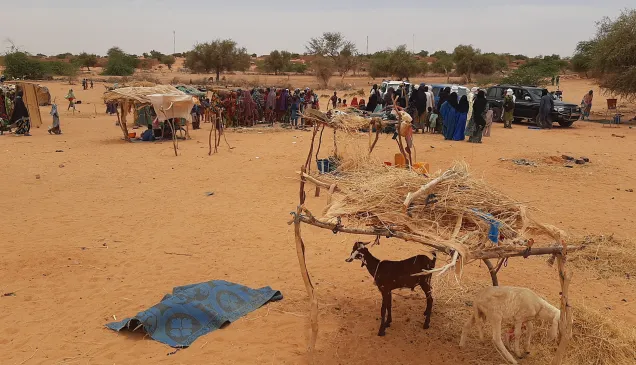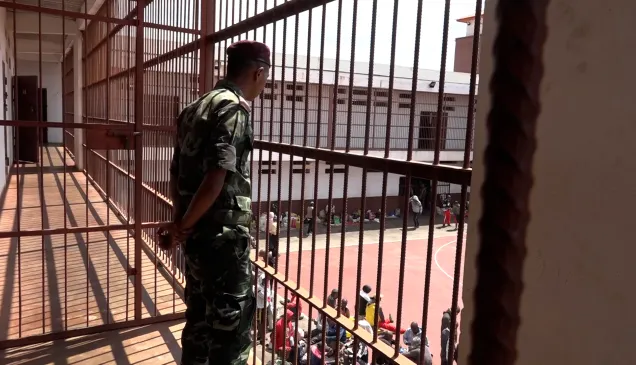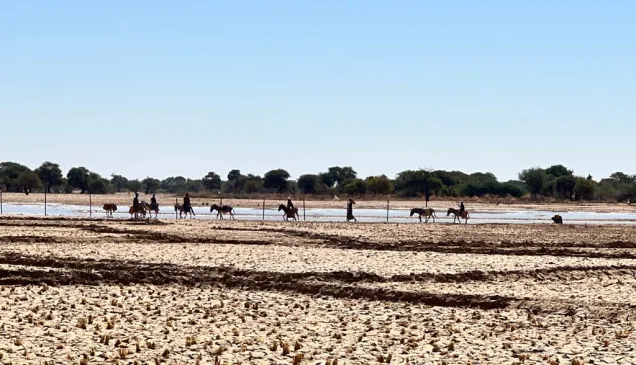Community-level economic support provides a lifeline for women in northern Mali
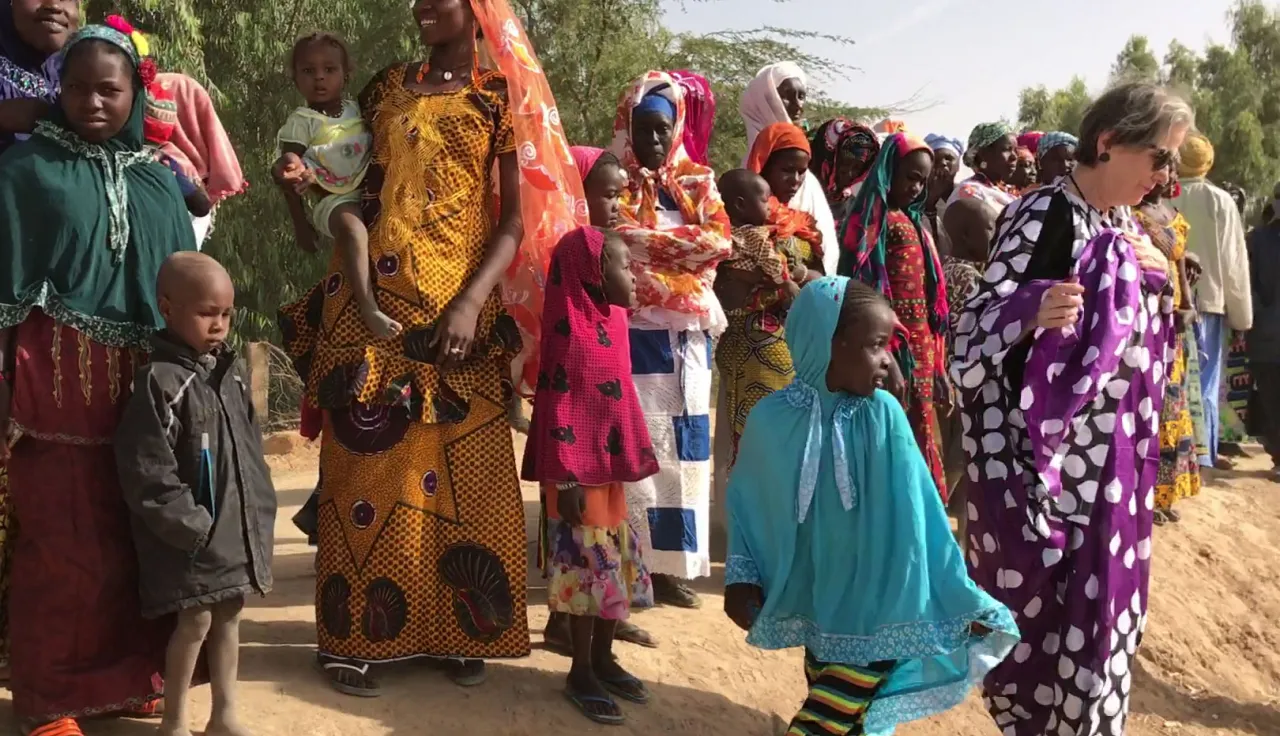
In the village of Toya, 20 km from Timbuktu, people's lives are shaped by two devastating forces: climate and conflict.
Overlooking sweeping sand dunes bordering the Niger River and – behind sparse trees planted some years ago to hold off the encroaching desert – patchy rice fields largely dependent on river water for irrigation, the impoverishing effects of climate change are stark.
Toya is situated in one of the most vulnerable regions of one of the poorest countries in the world – Mali is currently ranked 175th out of 188 countries on the UN's Human Development Index. Years of drought and increasing desertification have parched the land and shrunk the river. Harvests, mainly of rice, have become more and more precarious, while fish have become less plentiful.
On top of this, intensifying armed conflict, widespread banditry and the absence of the State in many areas has made an already dire humanitarian situation much worse, causing displacement, inhibiting return, and severely curtailing access to vital services. Food insecurity is on the rise. So, too, are malnutrition rates.
"Life here is very, very difficult...no rain, not enough food, no money," says Safiatou Bahada, a widowed mother of eight children, cradling the youngest in her arms. "And now it is also very unsafe; lots of robberies and attacks. We're all afraid, but what can we do? Where else would we go?" she adds.
Like most women in rural Mali, Safiatou has had only the most basic education and has no realistic prospect of formal employment. The reality of trying to provide for her large family on her own is harsh. She supplements the little she earns from selling fish at the market by working in the fields, pumping river water through irrigation channels and harvesting.
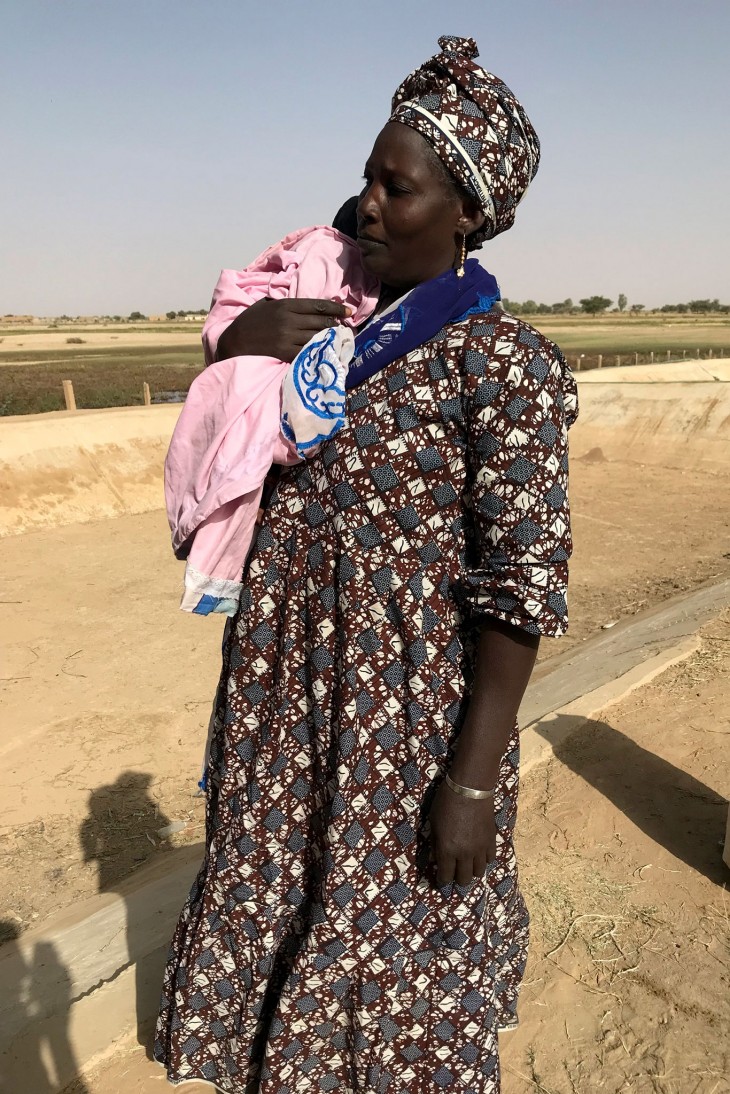
Hadijatou Maiga, community association member, standing by newly renovated pisciculture basins in Toya, Timbuktu region. The ICRC is supporting a community association to develop fish farming to boost the local economy and help address long-term needs. CC BY-NC-ND / ICRC / Claudia McGoldrick
To make matters worse, there is a constant fear of being robbed or attacked, particularly on the road. Safiatou says she was robbed of her profits just a few days earlier, when armed men stopped the vehicle she was travelling in and threatened the passengers.
In order to help vulnerable women like Safiatou – and to boost the local economy – the ICRC is supporting a community association to develop fish farming in Toya. Three large enclosures fed by river water irrigation systems have been renovated and initial stocks of juvenile fish supplied that will be raised, harvested and reproduced. Profits will be shared equally among the association's members, more than one third of which are women. And their numbers are rising.
"Given the decreasing water levels here and reduced availability of river fish, fish farming is a good way to ensure sustainability," says Joel Fortuné, the ICRC economic security delegate in Timbuktu. "The aim is to build up people's capacity and self-sufficiency, especially the large numbers of vulnerable women who are in many cases the head of their household," he adds. "We are hoping this project will serve as a flagship that will be replicated elsewhere in the region."
The project is just one of many in conflict-affected areas of the country where the ICRC is helping to address longer-term needs, be it sustaining basic services and infrastructure, or providing different types of agricultural and community support. And of these, a number of projects are specifically aimed at strengthening the resilience of vulnerable women.
On the outskirts of Timbuktu, one such project is supporting a women's association to produce soap, providing raw materials and technical advice. The association's president, Bintu Sesay, explains that although most of the women do numerous jobs to try to make ends meet, making and selling soap is their most reliable source of income. "Some of us were also doing market gardening, but bandits came just three days ago and stole the solar panels for pumping water," she says.

Women members of a community association in Timbuktu making soap. ICRC supports income-generating activities by diverse community groups like this one, especially those run by and for vulnerable women. CC BY-NC-ND / ICRC / Claudia McGoldrick
Bintu recalls how many families fled their homes when armed groups took control of Timbuktu and other northern areas in 2012. "We fled to different places, staying with relatives or people we know, but everyone was struggling to survive. It was too hard, so after a few months we came back. Some of our families got separated and some women returned as widows" she says. "Life here under the Jihadis was hard too, we had to be very careful, but we just had to accept it."
Hadi Sesay – a widowed mother of nine children – agrees, recounting how she was arrested on two different occasions for "not being properly covered" while selling in the market, and both times was held for almost a day. But her life became even more difficult. "Since my husband died two years ago life has become almost unbearable" she says. "Mostly we only eat once a day. Often I give my share to the children and I go hungry."
"If it wasn't for soap making and selling we might all starve," says Hadi. "But still I'm very afraid of what the future holds; how this conflict will affect us; what will happen to my children."
Hadi's situation is just one example illustrating the complexity of the crisis in Mali – and the urgency of addressing it. As Christine Beerli, ICRC's vice president, remarked on a recent visit to Timbuktu and other areas of Mali, "The foundations for peace need to be built at the community level, for example by ensuring local governance is more inclusive; promoting respect for the law by all sides; and creating economic opportunities particularly for vulnerable groups. Helping to empower women is an important step in the right direction."
"Ultimately genuine political will is needed to end this deep-rooted crisis," said Ms. Beerli. "In the meantime humanitarian organisations like the ICRC will continue to play a vital role, saving lives but also paving the way for future development."

